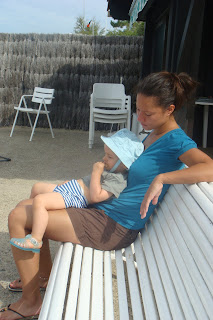A recent television documentary on World War II was a great popular success and critical .
It seems to me that, as many popular documentaries, he has neglected the economic dimension of the conflict, which he has also conveyed a false image. This image is implicit in the figure of Albert Speer , who headed the Department of Arms and war production in 1942, and which appears as the incarnation at once of devotion to Hitler and effectiveness of the Nazi apparatus. Albert Speer is hiding behind a stereotype: that of an orderly and efficient German people, particularly in the economic field, particularly under a dictatorship.
Nothing is further from the truth however: Germany has largely lost the war by economic inefficiency. World War II, more than the first, was an industrial war: win it supposed to have more arms-industrial products-the adversary, and thus produce more. In this game, Germany was more than mediocre: it was almost nil, especially compared with the United States. Germany is indeed that poorly managed and very late to set up a real war economy.
It was, first, unable to increase the overall volume of economic output within the total mobilization implied war.
 Apart from the Soviet Union, it was all the belligerents who was least able to increase its economic output. Between 1939 and 1944, the United States perform a virtual economic achievement: they double their economic output, which usually involves decades of growth. Germany increases by just over 10% of its production, despite the requisitions considerable manpower and capital made from the conquered countries.
Apart from the Soviet Union, it was all the belligerents who was least able to increase its economic output. Between 1939 and 1944, the United States perform a virtual economic achievement: they double their economic output, which usually involves decades of growth. Germany increases by just over 10% of its production, despite the requisitions considerable manpower and capital made from the conquered countries. But there is more: the total economic mobilization involved in the war requires not only increase the volume of production, it also requires transforming existing civilian production to war production: for example, using any steel available to manufacture airplanes, not cars and transform the automobile factories in plant tanks. It goes without saying that such measures are not popular among manufacturers, who pass under the control of the state, nor among the population that suffers when rationing.
Again, the U.S. performance is exceptional : An essential part of the doubling of production was devoted to the war industry. In 1944, a GDP of 182 billion, 96 were devoted to military spending of the state. The United States and produced 86,338 tanks, 297,000 aircraft, 17.4 million rifles and 64 500 ships in four years of war.
Nothing like in Germany, the German leaders were long unable to use to military purposes economic resources previously used to meet civilian needs. The slowness of this conversion can be raised by a number: between February and March 1944, the production of combat aircraft has increased by 48%. This means the potential conversion of resources that still existed in Germany for almost a year before the defeat. This conversion was, in fact, too little too late: it really starts at the end of 1942, when Speer came to power, and that Germany suffered its first defeat.
How to explain this poor performance? Galbraith, the famous economist heterodox, gives us some keys in his time travel economic . Something unfamiliar, he was commissioned by the U.S. government to assess the economic performance of Germany, having played an important role in setting instead of the war economy in the United States.
leading cause paradoxical: the Germans have experienced the good health of their economy before the war. The coming to power of Hitler in 1933 coincides with an economic recovery effect, which almost saved the German crisis of 1929. Nothing like the United States: their economic output in 1939 found only its 1929 level. In Germany, in 1939 it was 50% higher in 1929.
 In 1939, the United States are, in fact, not yet out of the crisis: unemployment is 17% and there are huge industrial capacity idle. They will be easy to mobilize economic resources but considerable unused military purposes: in fact, 5 years later, unemployment is over (1%) in the United States. The war effort will be released as the U.S. recession, while assuring them of victory: the "evidence Mars" (Galbraith) the effectiveness of Keynesian stimulus policies.
In 1939, the United States are, in fact, not yet out of the crisis: unemployment is 17% and there are huge industrial capacity idle. They will be easy to mobilize economic resources but considerable unused military purposes: in fact, 5 years later, unemployment is over (1%) in the United States. The war effort will be released as the U.S. recession, while assuring them of victory: the "evidence Mars" (Galbraith) the effectiveness of Keynesian stimulus policies. Nothing like in Germany: the economy is already in full in 1939, using all the resources in manpower and capital available. Any increase in military production implies reduced civilian production: and this, as we have seen, is always difficult, because unpopular.
This implies, on the other hand, whose organizational skills were lacking the Nazi command structure, and the men who was in her head, unlike the U.S., where the best economists in the world were used at that spot.
This is another root cause of economic failure German chaos reigned in this structure, and as noted Harendt, ideology was so strong that a year of defeat, they preferred to send one million of Hungarian Jews to death rather than use them as labor in factories weapons. The German command was more incompetent: he was irrational. And that saved the world.












